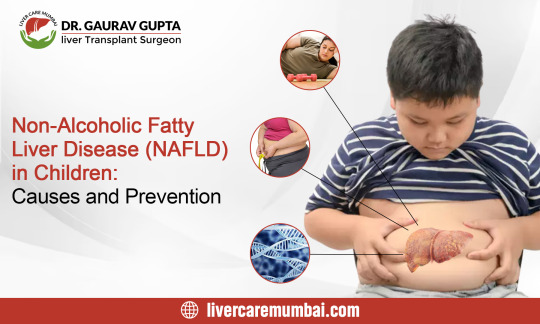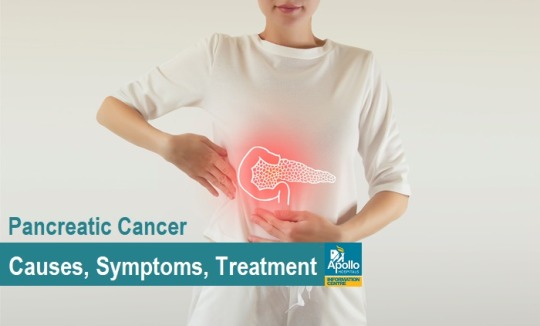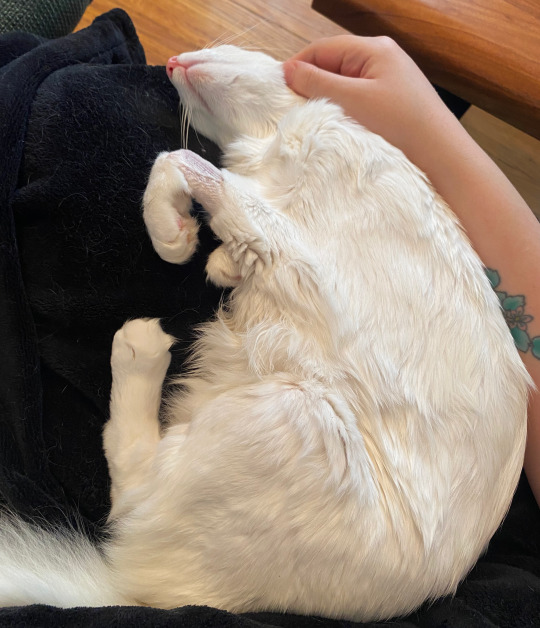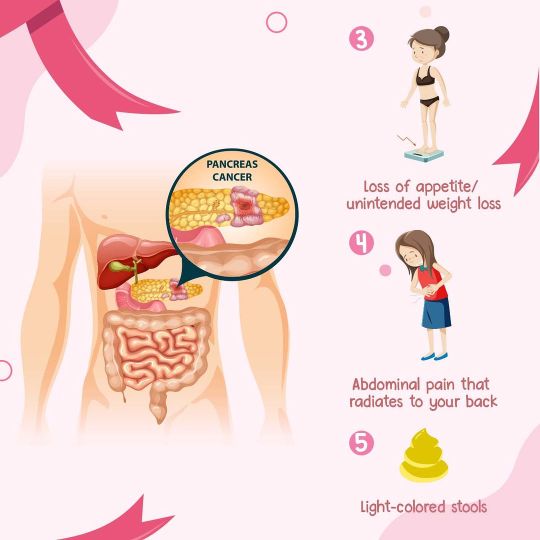#Pancreatic
Text
What are the symptoms for pancreatic Cancer?
Notice anything unusual happening in your body? Consult your health practitioner today & remember the first step to beat cancer is to identify it in its early stages.
4 notes
·
View notes
Text
Understanding Pancreatic Tumours: Their Types, Risks, and Treatment Approaches From The Best Pancreatic Surgeon In Surat

Pancreatic tumours are a complex and often challenging medical condition that affects thousands of individuals each year. These tumours can vary in type, present significant risks, and require careful consideration when determining the most effective treatment approach. In this blog, Dr Dhaval Mangukiya, one of the best laparoscopic surgeons, delves into the different types of pancreatic tumours, the associated risks, and the various treatment options available to patients.
Types of Pancreatic Tumours
Pancreatic tumours vary in terms of their symptoms and prognosis. Some of them are:
Pancreatic Adenocarcinoma
The best pancreatic surgeons in Surat, including Dr Dhaval Mangukiya, say that this type of tumour is the most common form of pancreatic cancer and accounts for the majority of cases. Pancreatic adenocarcinoma typically originates in the cells lining the pancreatic ducts and is known for its aggressive nature and tendency to metastasize.
Pancreatic Neuroendocrine Tumours (PNETs)
PNETs are less common than pancreatic adenocarcinoma but can still pose significant health risks. These tumours develop from hormone-producing cells in the pancreas called neuroendocrine cells. PNETs can be either functional, meaning they produce hormones, or non-functional, meaning they do not produce hormones.
Cystic Tumours
Cystic tumours of the pancreas are fluid-filled growths that can be benign or malignant. These tumours often present as cystic lesions on imaging studies and may require further evaluation to determine their nature and appropriate management.
Risks Associated with Pancreatic Tumours
1. Age: Advanced age is a significant risk factor for developing pancreatic tumours, with the majority of cases diagnosed in individuals over the age of 65.
2. Smoking: Cigarette smoking is strongly associated with an increased risk of pancreatic cancer. Smokers are at a higher risk of developing pancreatic tumours compared to non-smokers.
3. Family History: As per the experience of Dr Dhaval Mangukiya, one of the best pancreatic surgeons in Surat, individuals with a family history of pancreatic cancer or certain genetic syndromes, such as hereditary pancreatitis or Lynch syndrome, have an elevated risk of developing pancreatic tumours.
4. Chronic Pancreatitis: Chronic inflammation of the pancreas, known as chronic pancreatitis, is a risk factor for the development of pancreatic cancer over time.
5. Obesity and Diet: Obesity, a diet high in red and processed meats, and low fruit and vegetable intake are linked to an increased risk of pancreatic tumours.
Treatment Approaches for Pancreatic Tumours
Surgery
Surgical resection is often considered the primary treatment for operable pancreatic tumours. Depending on the location and stage of the tumour, procedures such as Whipple surgery (pancreaticoduodenectomy), distal pancreatectomy, or total pancreatectomy may be performed to remove the tumour and affected pancreatic tissue, says Dr. Dhaval Mangukiya, one of the best laparoscopic surgeon in Surat.
Chemotherapy
Chemotherapy may be used as neoadjuvant therapy before surgery to shrink the tumour or as adjuvant therapy after surgery to reduce the risk of recurrence. Chemotherapy regimens commonly used for pancreatic cancer include gemcitabine, nab-paclitaxel, FOLFIRINOX, and 5-fluorouracil (5-FU) based combinations.
Radiation Therapy
Radiation therapy may be utilized alone or in combination with chemotherapy to treat pancreatic tumours. This treatment modality uses high-energy beams to target and destroy cancer cells while minimizing damage to surrounding healthy tissue.
Targeted Therapy
Targeted therapy drugs are designed to specifically target cancer cells based on their molecular characteristics. Examples of targeted therapies used for pancreatic cancer include erlotinib, cetuximab, and bevacizumab.
Immunotherapy
Immunotherapy drugs work by stimulating the body’s immune system to recognize and attack cancer cells. While immunotherapy has shown promise in other types of cancer, its efficacy in pancreatic cancer is still being studied in clinical trials.
Palliative Care
For advanced pancreatic cancer that cannot be cured, palliative care focuses on relieving symptoms, improving quality of life, and providing emotional support for patients and their families.
Final Thoughts
Pancreatic tumours encompass a diverse range of malignancies with varying types, risks, and treatment approaches. Early detection and prompt intervention are crucial for improving outcomes and enhancing the quality of life for individuals diagnosed with pancreatic tumours. The best gastrointestinal surgeons in Surat have shared the symptoms and treatment options to create awareness about the types of pancreatic tumours, recognizing associated risk factors, and exploring available treatment options. Patients and healthcare providers can work together to develop personalized treatment plans tailored to individual needs and circumstances.
0 notes
Text

Highly competent surgeons with extensive experience and skills in minimally invasive procedures undertake pancreatic surgery in India for cancer at Thangam Robotic Center.
0 notes
Text

"Our program offers children with complex pancreas and liver disorders hope that few places in the world can match. My transition to Nationwide Children’s Hospital has been everything I had hoped it would be and I look forward to continuing to build on the amazing start I have had here in Columbus."
A. Jay Freeman, Physician, Medical Director of Pancreatic Care, Pancreas and Liver Care Center
0 notes
Text

16 noiembrie: Ziua Mondială a Cancerului Pancreatic
Ziua Mondială a Cancerului Pancreatic pică în fiecare an în a treia joi din noiembrie. Această zi permite comunităților să se ralieze în creșterea conștientizării și sprijinirii oamenilor care se luptă cu cancerul pancreatic, una din cele mai grave forme de cancer.
https://www.diane.ro/2023/11/16-noiembrie-ziua-mondiala-cancerului.html
0 notes
Text
There are no specific blood tests that can definitively detect pancreatic cancer on their own. However, there are certain blood markers and tests that can be used in conjunction with other diagnostic methods to help assess the possibility of pancreatic cancer or monitor the disease's progression.
Some of the blood tests that may be considered in the evaluation of pancreatic cancer include:
CA 19-9 (Carbohydrate Antigen 19-9): CA 19-9 is a tumor marker that is often elevated in people with pancreatic cancer. However, it is not specific to pancreatic cancer and can be elevated in other medical conditions as well. CA 19-9 is most commonly used to monitor treatment response and disease progression in individuals with known pancreatic cancer.
CEA (Carcinoembryonic Antigen): CEA is another tumor marker that can be elevated in various types of cancer, including pancreatic cancer. Like CA 19-9, CEA is not specific to pancreatic cancer and is used in conjunction with other diagnostic tests.
Complete Blood Count (CBC): A CBC can provide information about the number of different blood cells, which can be affected by pancreatic cancer or its treatment.
Liver Function Tests: These tests measure the levels of certain liver enzymes and substances in the blood. Abnormal liver function test results can be a sign of pancreatic cancer or other liver-related issues.
Note that while these blood tests can raise suspicion of pancreatic cancer, they are not definitive diagnostic tools on their own. To confirm the presence of pancreatic cancer, further diagnostic procedures such as imaging tests, endoscopic examinations, and biopsies are typically required.
For the general population, the focus of a full-body checkup or general health screening typically includes monitoring for common health issues like high blood pressure, cholesterol levels, diabetes, and early detection of more prevalent cancers such as breast, colon, or prostate cancer. While these screenings are important, they are not specific for pancreatic cancer. Get full body checkups done to detect pancreatic cancer and other health diseases early.
#women health#pancreatic#pancreatic cancer#chronic pancreatitis#acute pancreatitis#pancreas#health#surgery#cancer#chemotherapy#radiation#external radiation#internal beam radiation#hospital#full body health checkup#health checkup
0 notes
Text
Non-Alcoholic Fatty Liver Disease (NAFLD) in Children: Causes and Prevention

Introduction
Non-Alcoholic Fatty Liver Disease (NAFLD) is a growing concern in today's society, affecting not only adults but also children. Once thought to be an adult-only condition, NAFLD is increasingly being diagnosed in children due to changes in lifestyle and dietary habits. In this blog post, we will delve into the causes of NAFLD in children and discuss effective prevention strategies to ensure the well-being of our younger generation.
Understanding NAFLD in Children
NAFLD is a condition characterized by the accumulation of fat in the liver cells of individuals who consume little to no alcohol. While it's normal for the liver to contain some fat, excessive accumulation can lead to inflammation and potential damage. In children, NAFLD can progress to more serious conditions, such as non-alcoholic steatohepatitis (NASH) and even cirrhosis if left untreated.
Causes of NAFLD in Children
Dietary Habits: The rise in consumption of high-calorie, processed foods and sugary beverages has contributed significantly to the prevalence of NAFLD in children. Diets rich in refined carbohydrates and added sugars can lead to insulin resistance and fat buildup in the liver.
Lack of Physical Activity: Sedentary lifestyles, with increased screen time and reduced physical activity, play a substantial role in the development of NAFLD. Regular exercise is essential for maintaining a healthy weight and improving metabolic health.
Genetic Predisposition: Genetics can also play a role in a child's susceptibility to NAFLD. Some children may have a genetic predisposition that makes them more likely to develop the condition, especially when combined with poor lifestyle habits.
Overweight and Obesity: Children who are overweight or obese are at a higher risk of developing NAFLD. Excess body weight, particularly around the abdominal area, increases the likelihood of fat accumulation in the liver.
Insulin Resistance: Insulin resistance, often linked to obesity and unhealthy diets, can contribute to NAFLD. When cells become resistant to insulin, the body produces more insulin, which can lead to fat storage in the liver.
Prevention Strategies
Promote Healthy Eating: Encourage a balanced diet rich in fruits, vegetables, whole grains, lean proteins, and healthy fats. Limit consumption of sugary foods, fast food, and processed snacks.
Limit Sugary Beverages: Encourage water as the primary beverage and limit the intake of sugary drinks like soda and fruit juices, which can contribute to excessive calorie intake.
Encourage Physical Activity: Aim for at least 60 minutes of physical activity daily. Engage children in activities they enjoy, whether it's playing sports, biking, dancing, or swimming.
Limit Screen Time: Set screen time limits for electronic devices, as excessive screen time is often associated with sedentary behavior and unhealthy eating habits.
Lead by Example: Parents and caregivers play a crucial role in shaping a child's habits. Adopt a healthy lifestyle as a family to provide consistent support and motivation.
Regular Check-ups: Schedule regular wellness visits with a pediatrician to monitor your child's growth and development, as well as to detect any early signs of health issues.
Conclusion
Non-Alcoholic Fatty Liver Disease in children is a serious health concern that demands our attention. By understanding its causes and implementing effective prevention strategies, we can empower our children to lead healthier lives and reduce the risk of developing NAFLD. Through a combination of proper nutrition, physical activity, and positive role modeling, we can ensure that our younger generation grows up with a strong foundation for lifelong well-being. You can consult Liver specialist in Mumbai- Dr Gaurav Gupta for more information and treatment.
#gauravgupta#doctor#transplant#diseases#pancreas#pancreatic#liver#hospital#livertransplant#healthylife#livertransplantwarrior#tumor#liverrescue#stagesofliverdamage#NAFLD#ChildhoodObesity#ChildHealth#LiverHealth#HealthyKids#ChildWellness#HealthyHabits
0 notes
Photo

Pancreatic #cancer is a serious health concern in #kenya, with increasing cases and devastating consequences. At #apollohospitals, we understand the urgency of addressing this disease and offer advanced care and personalized treatment plans for patients battling #pancreaticcancer in Kenya. In this post, we will explore the causes, symptoms, and treatment options for pancreatic cancer.https://www.apolloinformationcentre.com/pancreatic-cancer-in-kenya-causes-symptoms-treatment/
#pancreatic #pancreaticcancerawareness #cancertreatment #cancercare #cancersupport #health
#pancreaticcancer#PancreaticCancerKenya#pancreatic#pancreaticcancerawareness#apollohospital#apollohospitals#kenya
1 note
·
View note
Link
Pancreatic cancer is a malignant tumor that forms in the pancreas. Pancreatic cancer Symptoms include abdominal pain, jaundice, and weight loss. Causes may include genetics, lifestyle factors, and other medical conditions. Treatment options include surgery, chemotherapy, radiation therapy, and targeted therapy. Early detection is crucial for improving outcomes, and there are promising developments in research and clinical trials.
#Pancreatic cancer#Pancreatic cancer symptoms#Pancreatic cancer Causes#Pancreatic cancer Treatment#pancreatic
0 notes
Text


I keep gently placing the blanket somewhere so I can creep off and do stuff, but Pangur immediately wakes and does a sick stumbling walk to wherever I am
#Pangur#oriental longhair#she's doing better today!#day by day she'll be getting stronger and eating more#pancreatitis is such a rough thing to go through
3K notes
·
View notes
Text


According to the American Cancer Society 2023 report, the five-year survival rate for pancreatic cancer is now 12%.
#universitycancercentres#cancertreatment#cancer#cancerawareness#health#texas#healthcare#lungcancer#graft vs host disease#pancreaticcancer#pancreatic#pansexual
1 note
·
View note
Text
Pancreatic Cancer Treatment in Pune
Expertise in pancreatic cancer treatment
Dr. Nikhil Jillawar is one of the best pancreatic cancer treatments in Pune for over six years now. He has successfully treated many patients in advanced stages in his hospital.
What Is Pancreatic Cancer?
Pancreatic cancer occurs within the tissues of the pancreas, which is a vital endocrine organ located behind the stomach. The pancreas plays an essential role in digestion by producing enzymes that the body needs to digest fats, carbohydrates, and proteins.
The pancreas also produces two important hormones: glucagon and insulin. These hormones are responsible for controlling glucose (sugar) metabolism. Insulin helps cells metabolize glucose to make energy and glucagon help raise glucose levels when they are too low. Dr. Nikhil Jillawar Has great experience with Pancreatic cancer. Now he is providing Pancreatic Cancer Treatment in Pune.
Pancreatic Cancer Symptoms
Pancreatic cancer often doesn’t show symptoms until it reaches the advanced stages of the disease. For this reason, there typically aren’t any early signs of pancreatic cancer.
Even once the cancer has grown, some of the most common symptoms can be subtle. They include:
loss of appetite
Unintentional weight loss
Abdominal (stomach) or lower back pain
Blood clots
Depression
0 notes
Text

TW: Chemical w-rfare, Ab-rtion
Urgent Ask to evacuate Nara, a 🍉 disabled woman with MS who also has pancreatic cancer due to chemical w-rfare.
Support by financially contributing to her @FedUp4Palestine vetted funhnd-raizer (that I personally vetted): givebutter.com/NaraMedicalAid
+ resharing/ reposting this post!
I, Sky Cubacub- a Fed up 4 Palestine team member, have been in direct contact with Nara to get to know her and her story more over the past few days. We have become fast friends due to so many overlapping symptoms of our disabilities. Nara’s story caught my eye because I have post-viral ME/CFS which many times is a precursor to MS. I really want my disability community to show up for her to get this campaign funded that is so close to my heart so that she can continue medical treatment.
We have chatted extensively! During our chats, I found out from Nara that she had not previously had health issues until she was exposed in the white phosphorus attack in 2008. The long lasting damage and effects of phosphorus continue to compound and become more and more disabling to this day, even after 16 years.
Here is her story in her own words (edited for clarity):
“Hi I'm Nara,
I'm a cancer and multiple sclerosis patient. I need treatment, examinations, and follow-up on a regular basis, but the hospitals in which I used to follow up were bombed and the other one was turned into military barracks. All I need now is to leave Gaza for treatment, preserve my life, and live with my family in peace.
We're a family of 4, including my 12 and 7 year old children.
I had been diagnosed with a tumor in the pancreas as a result of inhaling phosphorus in a previous war. A couple years after being exposed to phosphorus, I became pregnant, and the fetus was pressing on the tumor, which drew the doctor’s attention to the cancer. My fetus was emergency aborted, and the spleen, 80% of the pancreas, and part of the small intestine were removed. I complained every now and then of a lot of pain as a result of the removal of part of the pancreas. I was having follow up care in the Turkish Friendship Hospital for hematology and tumors. But since the beginning of October, I have not been able to follow up because the hospital has turned into a military barracks.
The remaining part is talking about multiple sclerosis:
In 2018, I was diagnosed with multiple sclerosis. I had many complications, such as inflammation of the seventh nerve in the eye, the inability to walk with balance, movement with difficulty, and many symptoms. I was then required to take 12 injections every month and many medications and vitamins. I was following up at the Nasser Medical Complex in Khan Yunis, but unfortunately the hospital was out of service due to the war. So for a long time I have not received any injections. MS is truly difficult and it controls my life completely, and the attacks occur in many and varied ways.”
A note about her breathing apparatus:
Because people in displacement have to wait in long queues and pay to use the bathroom, Nara had started to restrict her water intake because of a UTI she never has been able to heal from. This has created a problem with raised levels of potassium, so doctors have placed her on oxygen for fear of the potassium affecting her heart.
Goals
she needs at least $15,000 to evacuate
2 adults at $5,000 each
2 children at $2,500 each
this price is subject to increase due to the cost of registration for evacuation continuing to go up
The other money will go to the cost of treatment and living costs.
Nara chooses to stay anonymous because she has had to mask her disabilities so much that only her family knows about her MS and Cancer, so we have not linked her instagram, but we are in direct contact with her and can verify that she is who she says she is! Because of this, she cannot promote her own fundraiser, so it is our job to collectively do it for her!
[Image Description: a digital illustration by @k8deciccio of Nara, a Pal-eh-stienian woman wearing a black hijab/outfit with purple highlights. She has a breathing apparatus that is bulbous that goes in her nose. Text Reads: Help Narawith Cancer and MS Treatment, She Must Evacuate with her family of 4. $30k goal givebutter.com/NaraMedicalAid . There is a QR code in the bottom right corner that goes to her support link. The @FedUp4Palestine logo is in the top left corner.]
#gaza genocide#gazaunderfire#stand with gaza#news on gaza#war on gaza#gaza strip#free gaza#gaza#gazaunderattack#save gaza#mutual aid#i personally vetted this fundraiser#disabled and cute#disabilityculture#disabilityarts#disabilityjustice#multiple sclerosis#cancer#pancreatic cancer
1K notes
·
View notes
Text
Just Jot It January, Cancer
Linda’s simple rules here
Cancer is a word none of us want to hear. Unless you or your child are born between June 21 to July 22. Sadly for my mom she was born during that time and died of the worst cancer, pancreatic. One moment she wasn’t feeling well. Progressing quickly from not being able to eat to exploratory surgery. They closed her up. Gave her six weeks. But she was gone before I could…

View On WordPress
1 note
·
View note
Text
The pancreas is a vital organ located in the abdomen that plays a crucial role in digestion and blood sugar regulation. Several disorders can affect the pancreas, including:
Pancreatitis: Inflammation of the pancreas, which can be acute (sudden and short-term) or chronic (long-term). Gallstones and alcohol abuse are common causes of pancreatitis.
Pancreatic Cancer: A malignant tumor that forms in the tissues of the pancreas. It is a serious and often fatal disease. Symptoms may include abdominal pain, weight loss, jaundice, and digestive problems.
Pancreatic Cysts: Fluid-filled sacs that develop within the pancreas. Most pancreatic cysts are benign, but some can be precursors to pancreatic cancer.
Pancreatic Insufficiency: Occurs when the pancreas doesn't produce enough digestive enzymes, leading to difficulties in digesting and absorbing nutrients from food. It is commonly associated with conditions like chronic pancreatitis, cystic fibrosis, or pancreatic cancer.
Pancreatic Divisum: A congenital condition where the ducts within the pancreas don't properly fuse during development, causing inadequate drainage of digestive enzymes. It may lead to recurrent pancreatitis.
Pancreatic Endocrine Tumors: These tumors originate in the hormone-producing cells of the pancreas. They can be benign (non-cancerous) or malignant (cancerous). Examples include insulinomas, glucagonomas, and gastrinomas.
Autoimmune Pancreatitis: A rare condition where the immune system mistakenly attacks the pancreas, causing inflammation and fibrosis. It can mimic pancreatic cancer or chronic pancreatitis but responds well to corticosteroid treatment.
Cystic Fibrosis-Related Diabetes (CFRD): Individuals with cystic fibrosis (a genetic disorder affecting multiple organs) may develop CFRD due to damage to the pancreas, resulting in impaired insulin production.
Acute Pancreatic Necrosis: A severe complication of acute pancreatitis where pancreatic tissue dies due to inflammation and insufficient blood supply. It can lead to life-threatening complications.
Pancreatic Ductal Adenocarcinoma: The most common type of pancreatic cancer, accounting for the majority of cases. It arises from the cells lining the pancreatic ducts.
These are some of the pancreatic disorders. It's important to note that diagnosis, treatment, and management of these conditions require medical evaluation and guidance from healthcare professionals. There are best gastroenterologists specialised in diagnosing and treating pancreatic disorders like Dr Amit Maydeo. Dr Amit Maydeo can be consulted at H N Reliance hospital Mumbai.
#health#pancreatic cancer#pancreatitis#acute pancreatitis#chronic pancreatitis#cancer#chemotherapy#pancreatic#surgery
0 notes
Text

Liver specialist in Mumbai-Dr Gaurav Gupta
To know more visit- https://livercaremumbai.com/
#gauravgupta#doctor#transplant#diseases#pancreas#pancreatic#liver#hospital#livertransplant#healthylife#livertransplantwarrior#tumor#N3H2
0 notes